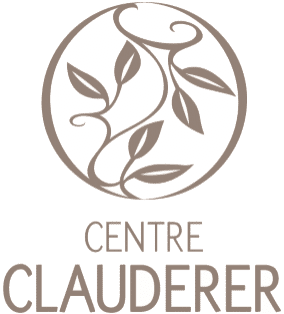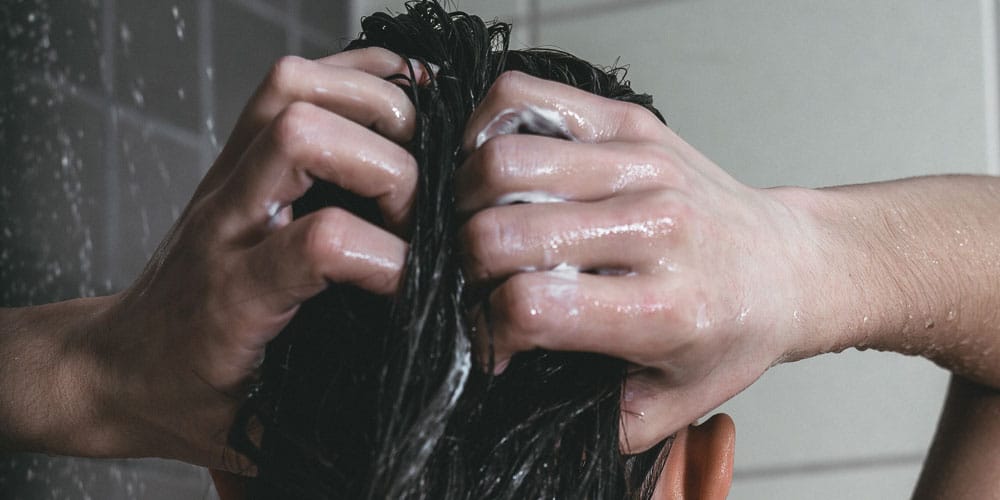The way you shampoo your hair is no trivial matter, and goes a long way to determining your hair's ecosystem. Here are 10 questions and answers to dispel preconceived ideas and make your shampoo a success.
Two successive washes are recommended to keep your hair clean.
Answer: FALSE. A second shampoo is unnecessary, especially if you wash your hair more than once a week. This second application, which is often recommended in the instructions for use and is very popular with hairdressers, simply sensitises the scalp unnecessarily and makes the hair more electric.
Here's the best way to do it: wet your hair, then lightly massage the entire scalp, without applying any product. Rinse your head once. Then spread a small amount of shampoo on your scalp and massage your hair, gradually adding more water. If your hair is long, there's no need to apply product to the lengths or ends.
On the other hand, prolonged rinsing is necessary, even if you wash your hair every day, even if you're in a hurry. And it's precisely those who wash their hair frequently who tend (with the help of routine) to botch their rinsing. And yet, without rinsing thoroughly, hair is vulnerable to air pollution and dulls very quickly.
Anti-hair loss shampoos can stop hair loss.
Answer: FALSE. It's a deception. Shampoos wash. And if they do so gently, that's all we ask. Treating hair loss requires special active ingredients, with a subcutaneous action that is incompatible with cleansing products. That said, even serious laboratories use this name. But in their case, it's always to complement their range of anti-hair loss products and to ensure that shampoos 'x' or 'y' don't weaken the effects of these products.
Anti-dandruff treatment shampoos are perfectly effective today.
Answer: TRUE. Most are effective, provided you choose them according to the nature of your dandruff. But they should be used in moderation. Excessive use of these shampoos can have the opposite effect to that intended: they can irritate the skin and devitalise the hair.
On the other hand, as anti-dandruff shampoos only treat the symptom, it is advisable to look for the origin of the problem, in order to put a more lasting stop to it. If in doubt about the cause, it's best to have a hair diagnosis to identify the problem and then treat it thoroughly.
Massaging the scalp when shampooing helps to tone the hair.
Answer: FALSE. Contrary to popular belief, massaging the scalp after applying shampoo is not at all advisable: it can weaken the epidermis or cause excess sebum production by stimulating the sebaceous gland. It's better to gently massage your hair with the shampoo and not rub your head vigorously.
On the other hand massage the scalp, before shampooing, is excellent for stimulating irrigation and toning hair.
The best shampoos are not necessarily those that lather the most.
Answer: TRUE. As a general rule, the gentler shampoos are, the less they lather and the less likely they are to leave hair split and brittle. This doesn't mean they don't wash: lather is a sign of aggressiveness rather than cleanliness.
Washing your hair too often causes it to become greasy or fall out more.
Answer: FALSE. Good shampoos today are sophisticated enough to allow frequent washing, even daily if you feel the need. But this doesn't mean your hair will get greasy or fall out more. Seborrhoea or hair loss are never caused by shampoo! Nevertheless, only use ultra-gentle shampoos (with a neutral pH of 7, i.e. neither acidic nor alkaline), without silicones, and don't skimp on price: it's not the number of washes per week that counts, but the quality and gentleness of the product. Cf. Components of Clauderer products
Despite these precautions, if the hair falls out too much during shampooing, the shampoo should not be blamed and the true cause of the problem should be sought. Cf. Clauderer hair diagnosis with root and keratin analysis.
Washing your hair with one (or two) egg yolk(s) will clean your hair.
Answer: TRUE. For "homemade" enthusiasts. Lecithin, a fatty substance found in egg yolks, captures and retains dust and impurities left behind by cosmetic products or pollutants. It's a good alternative to commercial shampoos.
Baby shampoos are very gentle and well suited to adult hair.
Answer: FALSE. The words "for babies" do not mean "ultra-gentle", but rather "not irritating" and "does not sting the eyes". These shampoos often contain superfatting agents, which are useful for children's hair but make adults' hair too soft.
A final rinse with cold water leaves hair shiny.
Answer: TRUE. Cold water closes the scales on the outer surface of the hair. These scales will have been opened by the warm water used in the shampoo. This last rinse therefore smoothes keratin.This allows the hair to reflect the light better and gives it a shiny effect. And if your scalp has a tendency to oil, cold water prevents the sebaceous glands from dilating and moderates sebum production.
A little vinegar in the last rinse adds shine.
Answer: TRUE. Vinegar helps smooth hair keratin. Lemon juice has the same effect, but without the smell. But vinegar also helps dissolve limescale in water, so it's a "two-in-one" product.
Bonus question: Can shampoo combat hair loss?
It's a tempting promise, but unfortunately it's an impossible one: a shampoo has no impact on hair loss. It can neither stop nor slow it down. Nor can it cause it, contrary to popular belief. Shampoos wash the hair's surface, purifying it of the dust, perspiration and sebum that have accumulated. This is what hygiene is all about. Depending on the nature of the hair, they can be moisturising, anti-seborrhoeic, anti-dandruff, volumising, and so on. Their role is to cleanse the scalp, leaving the hair clean and shiny, without stripping the epidermis or the hair's keratin.
To extend the life of a hair, the problem is quite different: you have to reach its root, located in the hair follicle, 4 mm below the scalp. In other words, you have to pass through the skin barrier, which is what treatment is about. The substances required - essential oils, vitamins, minerals - must be infinitely more powerful and concentrated than those found diluted in the washing ingredients of a shampoo. They also require a massage technique and a longer rest period, to penetrate deep into the dermis.
In fact, if you look closely at the instructions on the bottles claiming to be "anti-hair loss shampoo", you'll see key words such as "complement, relay, adjunct... to your anti-hair loss treatment". This is further proof, if any were needed, that the manufacturers themselves do not consider these shampoos to be genuine treatment products, but rather adjuncts to their treatments.

